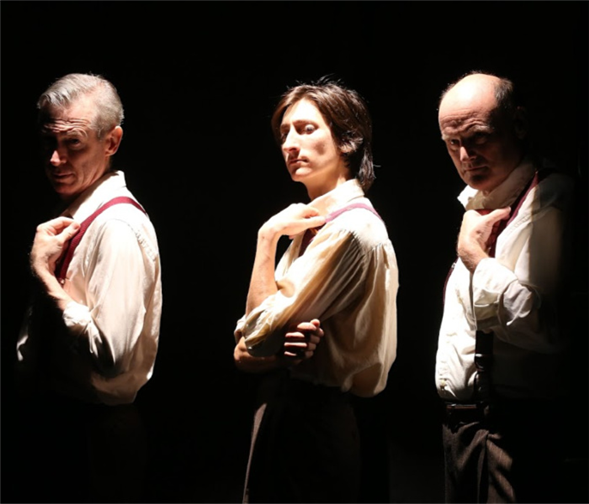Translate Page

How the master satirist's work speaks to today
---
Kurt Vonnegut, best known for his acidic novels Cat's Cradle and Slaughterhouse-Five, only wrote a handful of works for the theatre, mostly playlets that are rarely done. So when two shows with his byline are running Off-Broadway simultaneously, it practically qualifies as a festival.
San Francisco's Custom Made Theatre Company is behind the stage incarnation of Vonnegut's 1962 book Mother Night at 59E59 Theaters, while NYC's Wheelhouse Theater Company is mounting the only full-length play he ever wrote, Happy Birthday, Wanda June, at the Duke on 42nd Street. Both works feel perfectly timed, speaking to toxic masculinity and creeping authoritarianism. "In his day, Vonnegut was one of the country's leading social critics," says Wanda June director Jeff Wise. "He had a very traumatic experience in World War II, and he processed that trauma through his art."
Mother Night concerns Howard W. Campbell Jr., an American-turned-Nazi propagandist, who serves as a secret double agent during World War II. Back in the U.S. after the fighting ends, he is worshipped by white supremacists unaware of his ruse, before being nabbed by a Russian agent and ending up in an Israeli prison guarded by Holocaust survivors. "It's a reminder that this is a really old game," says director Brian Katz, who also adapted the source material. "The use of hatred, in service of the big lie, is tried-and-true. Maybe we can somehow expose it better."
{Image1}
Dunderheadedness, not duplicity, is the focus of Happy Birthday, Wanda June, which started out in 1960 as a play called Penelope before Vonnegut reworked and retitled it for a brief Broadway run in the early '70s. It follows a super-macho, Hemingwayesque war veteran, long missing and presumed dead, who returns home and attempts to reassert dominion over his wife and timid son. Originally meant to address America's involvement in the disheartening Vietnam War, Wanda June now speaks to a country that's morally polarized.
"At the very beginning of the script, Vonnegut writes, 'This is a play about men who enjoy killing, and those who don't,'" says Wise. "He's creating two camps that are black and white: You simply say, 'I'm going to do that,' or, 'I'm not going to do that.' And one is the right choice and one is wrong. That's what I love about it -- it becomes uncompromising."
It's also darkly funny. In its depiction of an R-rated, less-cuddly Archie Bunker bloviating about American exceptionalism, Wanda June advocates for maintaining the courage of your convictions. Meanwhile, Mother Night says complicity in a little bit of evil is the same as being all in. Both messages are fortifying today.
{Image2}
What wisdom would Vonnegut impart about our current state of affairs if he were still with us? "I think he would say, figure out how you're going to survive in this time and, in the end, are you doing good?" says Katz. "I don't think he thought the world was necessarily changeable in that way on a macro level, but he does say you have a personal responsibility not to do harm."
Vonnegut admitted that Mother Night was "the only story of mine whose moral I know: We are what we pretend to be, so be careful what you pretend to be." Katz says that insight proves that it's "about the perfect time for the play. And I get that we are preaching to the choir to some extent. But that's important, too."
---
TDF MEMBERS: At press time, discount tickets were available for Happy Birthday, Wanda June. Go here to browse our current offers.
Follow Michael Martin at @martinized. Follow TDF at @TDFNYC.
Top image: Eric Rice, Matthew Van Oss and Dared Wright in Mother Night. Photo by Carol Rosegg.